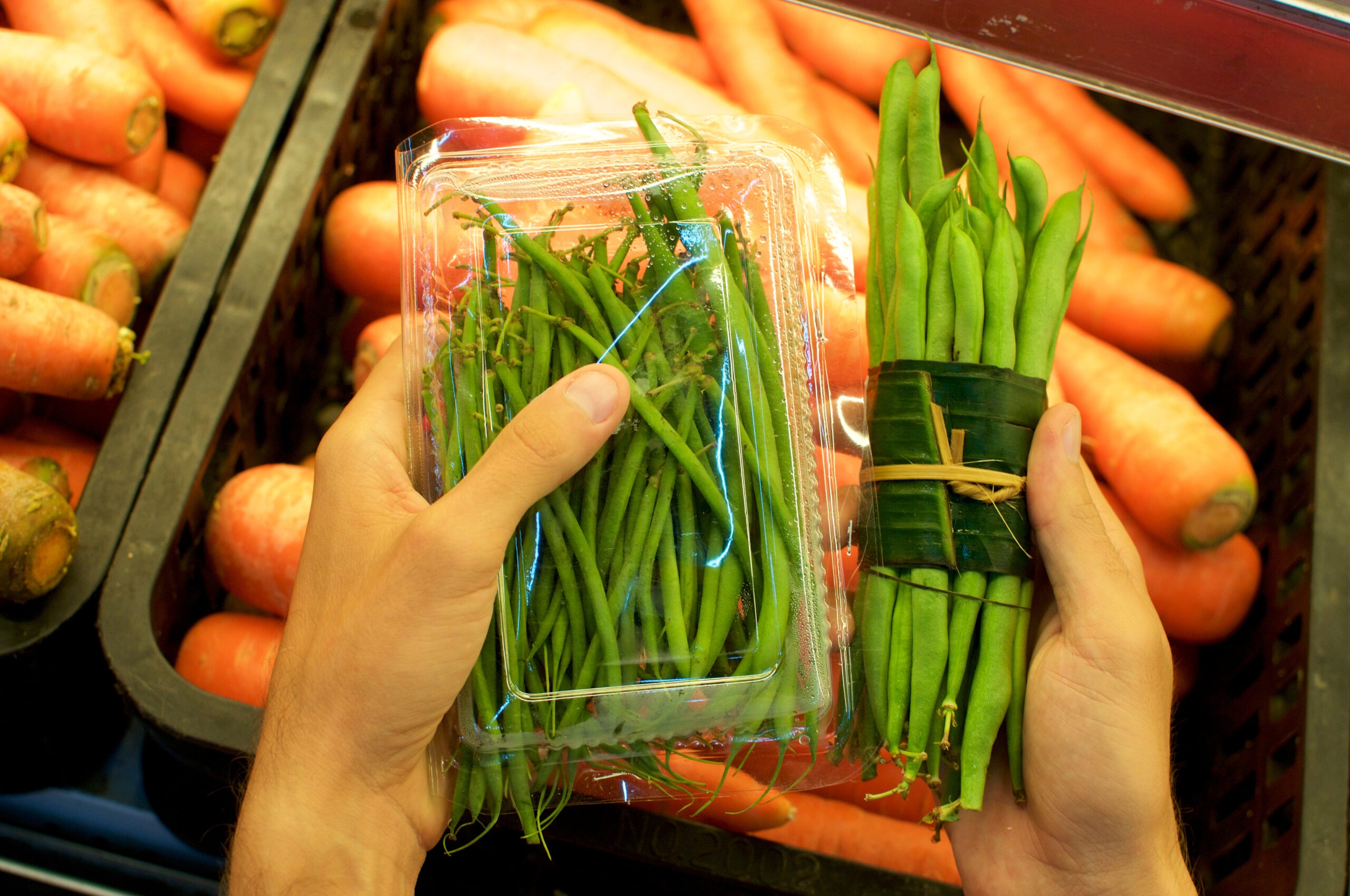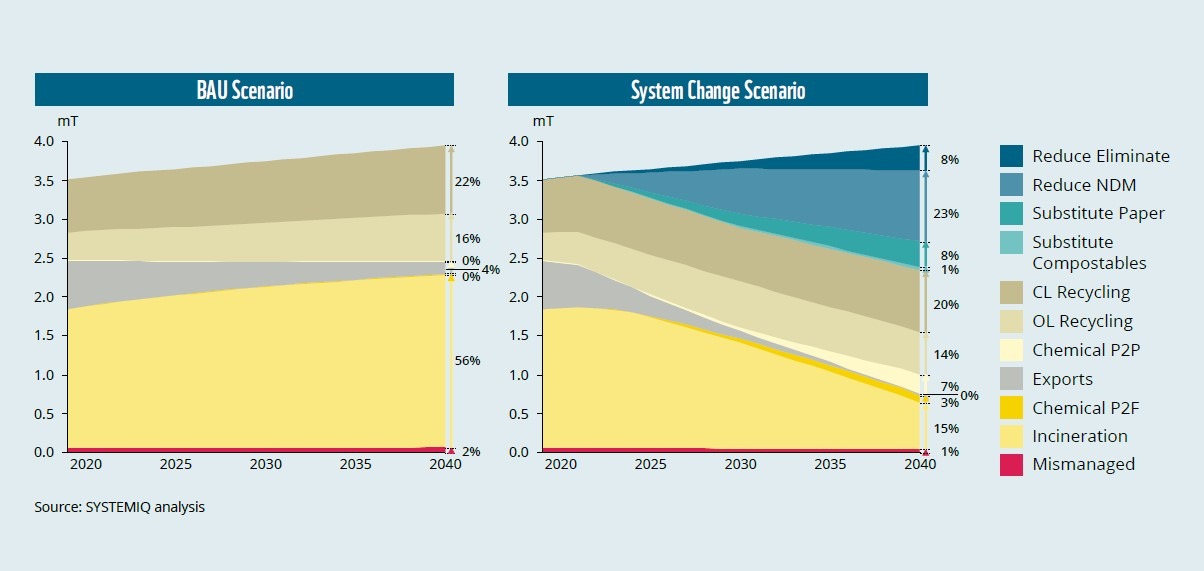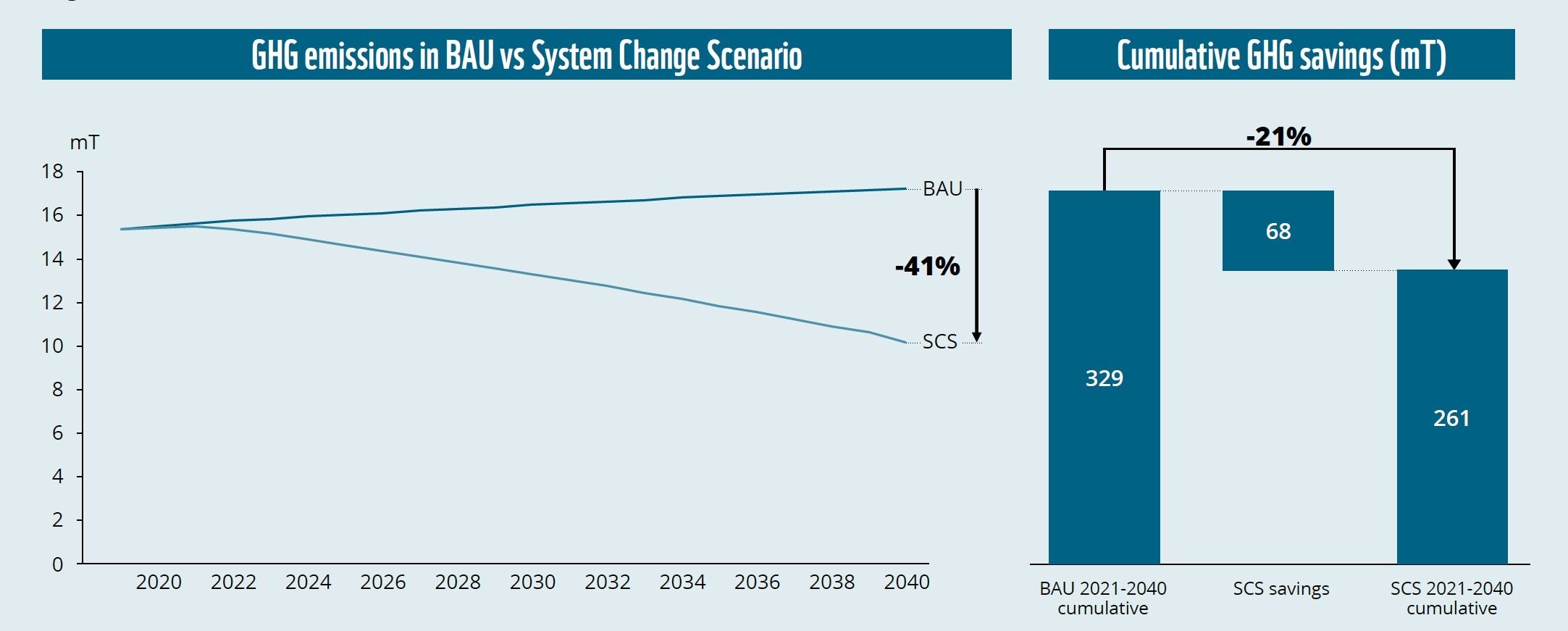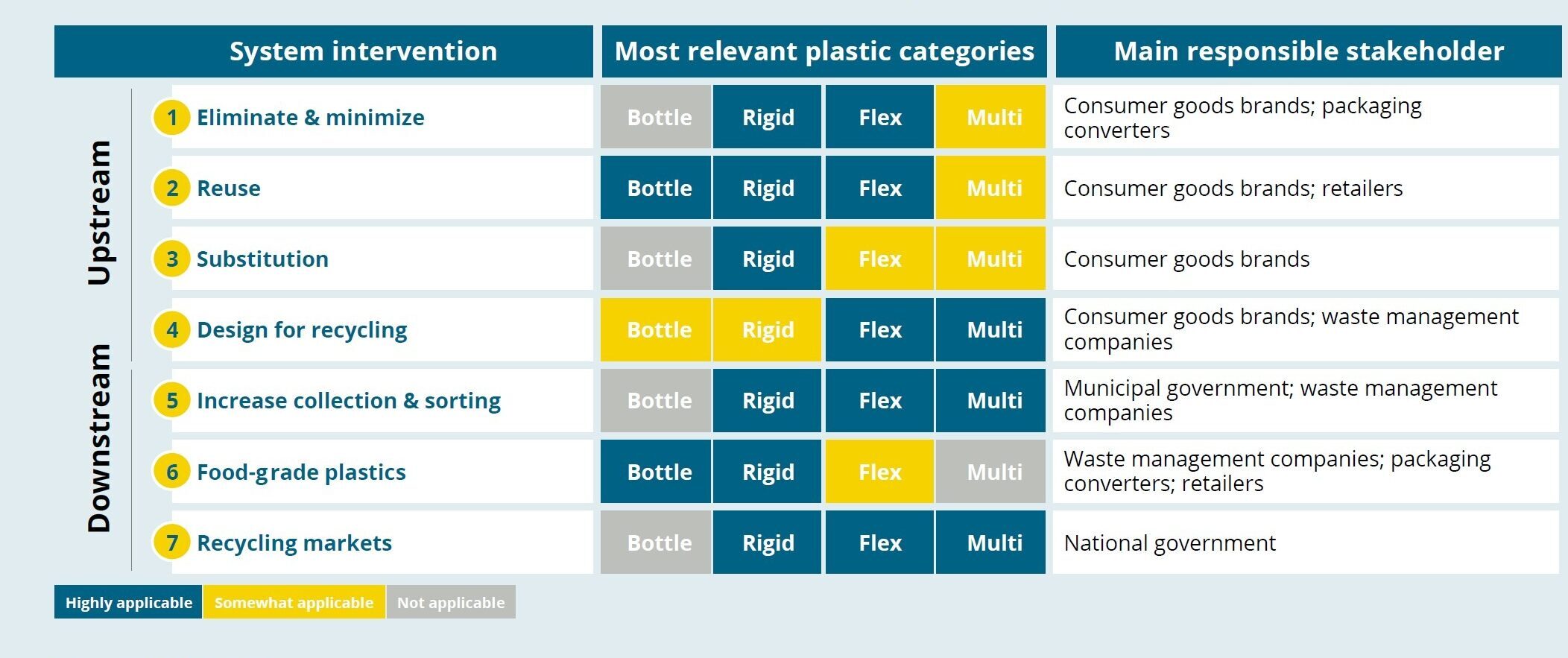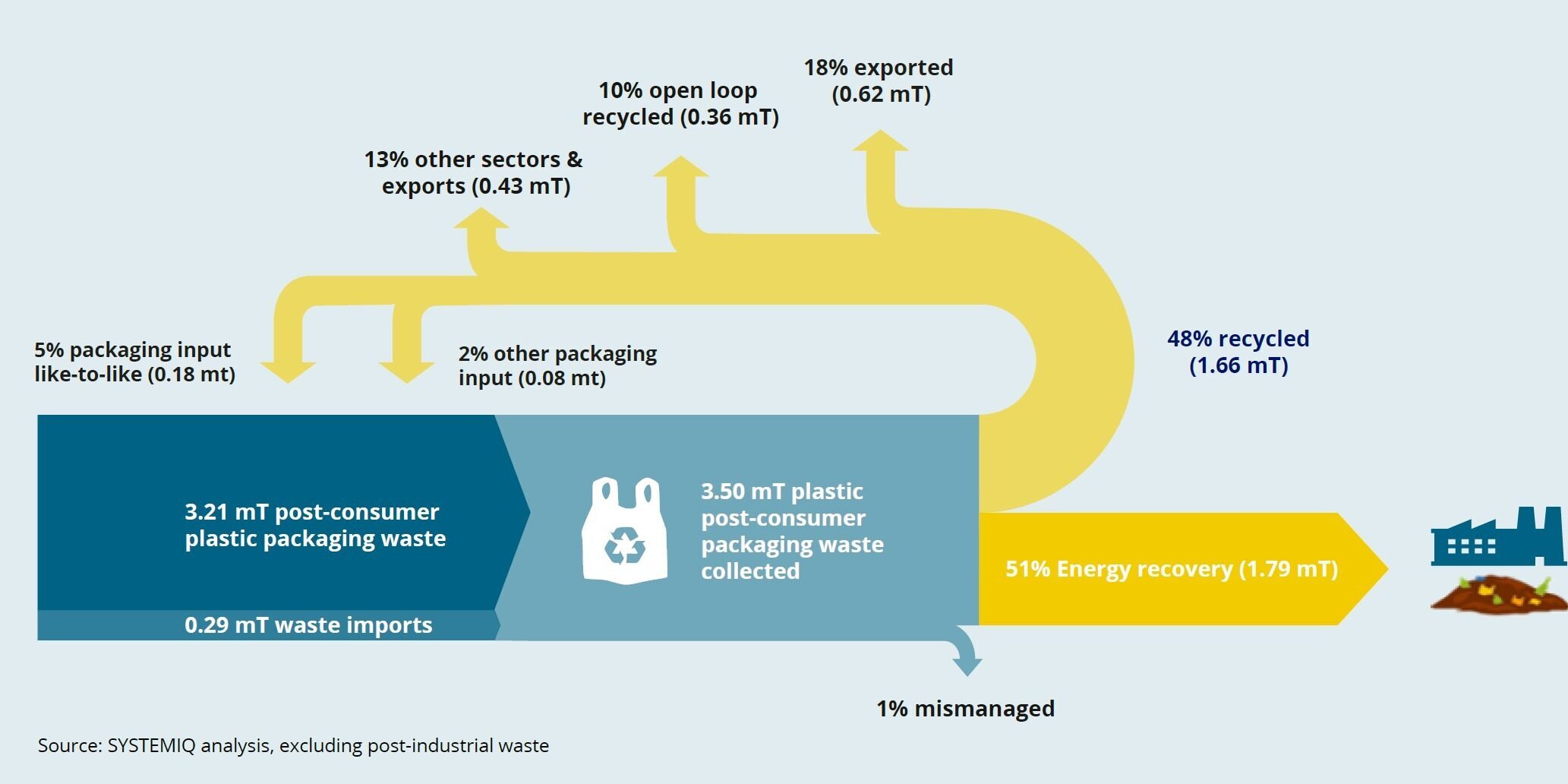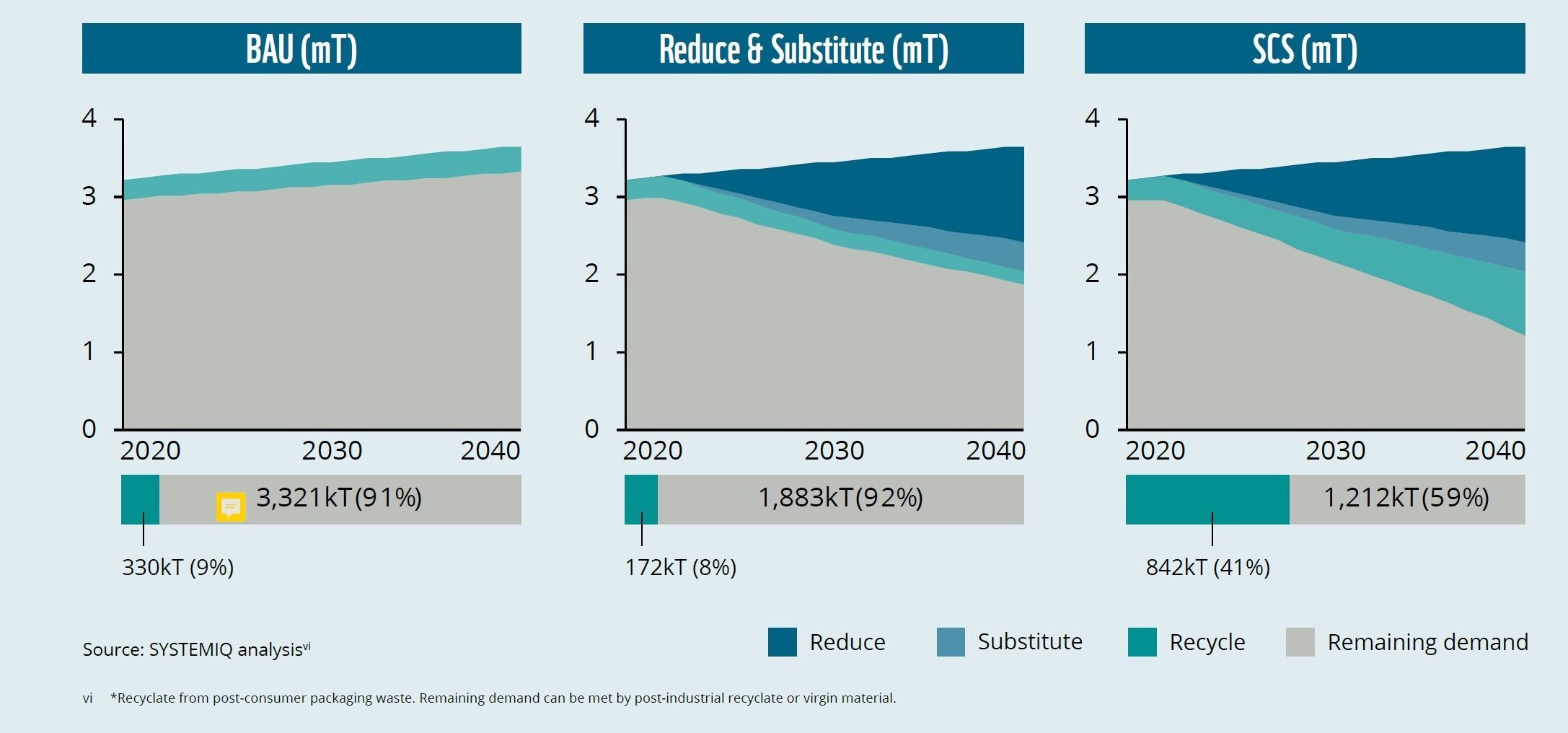Even as pressure grows to reduce pollution, Germany still burns over 1.6 million tons of domestic plastic packaging and waste every year. There must be a better way. Seven key interventions can transform how Europe’s biggest economy manages its materials, deliver system benefits of nearly €1bn, and create a circular packaging economy for Germany.
Germany is often heralded as a leader in waste and recycling, but new analysis reveals its untapped potential for a truly circular economy for plastic packaging. Policy makers and companies can radically improve the industry’s performance – and must do so, to align the packaging system with the Paris Agreement and the European Green Deal. System change depends on courageous political will, ambitious action by brands and close collaboration between industry, policy, and academia. A science-based study from SYSTEMIQ and WWF explains where and how the change must happen…
Burning through resources
Nearly 90% of all packaging in Germany is made of virgin materials, and more than half of its packaging waste is incinerated for waste-to-energy recovery. Germany burns over 1.6 million tons of plastic packaging every year – materials with an equivalent value of €3.8bn. Of the waste that is not incinerated, 18% is exported, while 10% is open-loop recycled and lost to the system after one, short use-cycle.
This wastage of valuable resources is getting worse. “For years we have been using more and more plastic packaging, and that packaging has become more complex and harder to recycle”, says Laura Griestop, an expert in materials and packaging at WWF Germany. “We need to make a conscious choice, and move from a throwaway society to a circular economy. We need less but better packaging.”
Current policy commitments may raise the recycling rate – but they won’t stop the waste mountain from growing. “We cannot simply recycle our way out of the issue. We need to activate all levers – from avoidance to reduction and recycling”, explains SYSTEMIQ Partner Sophie Herrmann. “Our analysis reveals that in a system change scenario, we can save more than 20 million tons of virgin plastic by 2040 – the equivalent of 6 years of net plastic consumption!”
The system change scenario could deliver…
40
64
73
68
A first-of-its-kind analysis
This data-driven study, from SYSTEMIQ and WWF, analyses the flows of plastic packaging in Germany. Using just the solutions that already exist, how could we transform the way packaging is used and get more value from materials, by keeping them in use for longer?
‘Burning Questions – Pathways to a circular plastic packaging system in Germany‘ builds on the methodology of ‘Breaking the Plastic Wave’, a landmark study on plastics use, and the findings of the CEID on the potential for circular economy systems in Germany. The analysis evaluates different strategies; it quantifies their impact, in terms of volume and recyclability of plastics, and also considers which perform best on cost, GHG emissions and jobs.
The report describes a transition from “waste management” towards circular resource management, including a focus on waste prevention, on keeping materials in the loop, and retaining their value as long as possible. Its seven systems interventions could reduce overall waste by 40%, save over 60% of virgin materials, and reduce waste to energy-incineration by over 70% by 2040. Perhaps most significantly, it could save 68 million tonnes of greenhouse gas emissions.
The analysis in five slides
A social, environmental and economic triple-win
The study shows that a circular economy for packaging is socially and environmentally vital. It’s also economically viable, and acheivable with tools and technologies that we already have. However, system change depends on courageous political will, ambitious action by brands and close collaboration between industry, policy, and academia. Germany can become the blueprint for a circular economy transition in Europe, and for developed countries at large.

